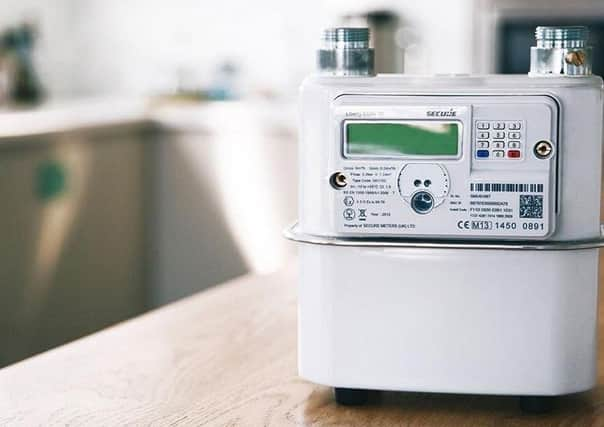Robert Cheesewright: Smart meters are first step to a greener county


We wouldn’t agree to an estimated mobile phone bill or an estimated shopping bill and yet we’ve collectively come to tolerate paying on average more than £1,000 a year for our energy and then letting the supplier in effect guess how much we’ve used.
Many of us are then left with the shock of an unexpectedly high bill at the end of the month and the prospect of being in debt to our energy company.
Advertisement
Hide AdAdvertisement
Hide AdUnfortunately, it’s even worse for the thousands of people across Yorkshire who use pre-pay for their energy. Not only do pre-payment customers run the risk of the lights unexpectedly going out if they’re not able to top up their credit, but they often end up paying more for their energy than their neighbours on direct debit when they do top up.
This is because our gas and electricity meters rely on outdated and inefficient technology that hasn’t changed since Victorian times. Thankfully this is all changing for the better because of the smart meter rollout.
Smart meters work by sending automatic meter readings to your energy supplier via a secure network, putting an end to estimated bills or scrabbling around under the stairs with a torch to take a meter reading.
Latest figures show that more than 643,000 households in Yorkshire and the Humber have now upgraded to a smart meter while more than 11 million smart meters have been fitted in homes across Great Britain as a whole.
Advertisement
Hide AdAdvertisement
Hide AdInstalled free of charge by your energy supplier, smart meters come with a portable in-home display showing your energy use in pounds and pence (not indecipherable ‘kilowatt hours’) in near real time. So as soon as your smart meter is installed, you can see how much your energy is actually costing you.
Armed with that information you could then, for example, find that you can afford to turn the heating up a touch. Or you might decide that you want to switch to four showers a week and save a bit of cash for something else. Alternatively, smart meters empower you to make clear choices to visibly reduce your energy waste, such as swapping your lightbulbs for more energy efficient LED versions.
These little energy-saving changes all add up. Already smart meter users are on average, saving three per cent more energy a year, than those with analogue meters. That’s enough energy to power your home for free for a week.
Government figures show that by 2030, the savings from having a smart meter in our homes will be almost £50 a year – a significant amount for many households. Many of the people we speak to tell us that they are making much bigger savings – more than £100 a year in some cases.
Advertisement
Hide AdAdvertisement
Hide AdWhat’s more, if you have a pre-payment meter, you’ll be able to see how much credit you have left on your in-home display and top up at any time of the day or night, by phone or online, from the comfort of home. You can also still top up in your local shop. Any credit will be automatically added to your account, so you won’t need to worry about putting a key or card back into a meter.
It’s also important to remember that you can always switch energy suppliers with a smart meter. Smart meter consumers are using the technology to find the best deal with the right supplier for their energy needs.
Indeed, more people with a smart meter switched supplier last year than those who still have an analogue meter, while some suppliers now have their most competitive tariffs for smart meter customers.
Smart meters are also a crucial step towards the development of smart energy grids. That matters, because we need a smart system to cope with the nation’s ever more complex energy needs. We need a system that can cope with demand from electric vehicles and the increase in renewable sources of energy to deal with climate change. Smart meters are the building blocks for this energy revolution.
Advertisement
Hide AdAdvertisement
Hide AdIn the future, smart meters will enable the introduction of tariffs designed to suit different lifestyles and take the pressure of our energy system, so there will be the flexibility to run the washing machine or charge your mobile phone when energy is cheapest – saving us money and helping us all do our bit for the environment.
The bottom line is that a smart meter puts you in control of your gas and electricity budget in a way that has never been possible before.
Getting a smart meter installed is a small but important step that everyone can take for a cleaner, greener and smarter Yorkshire.
Robert Cheesewright is director of policy and communications at Smart Energy GB.